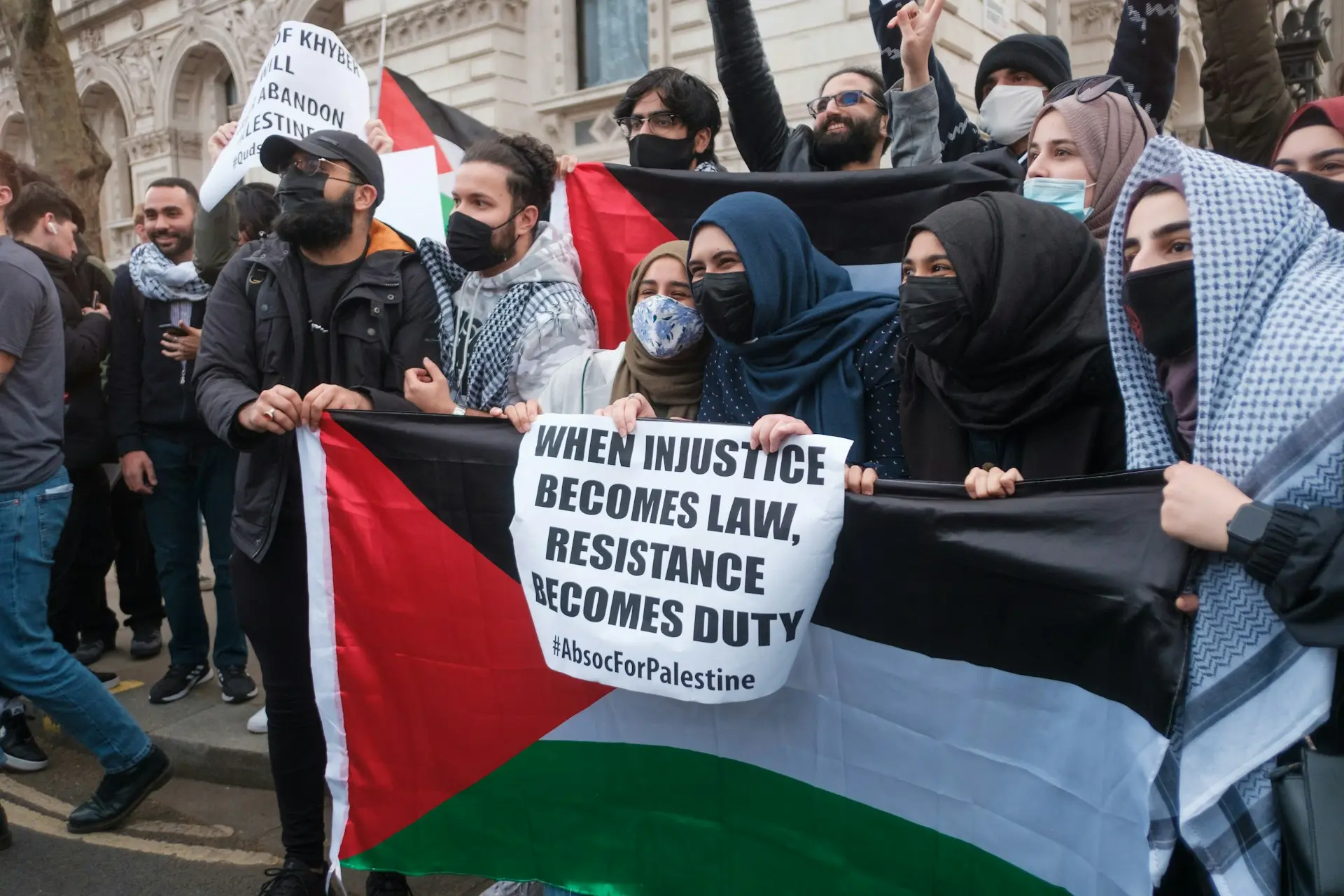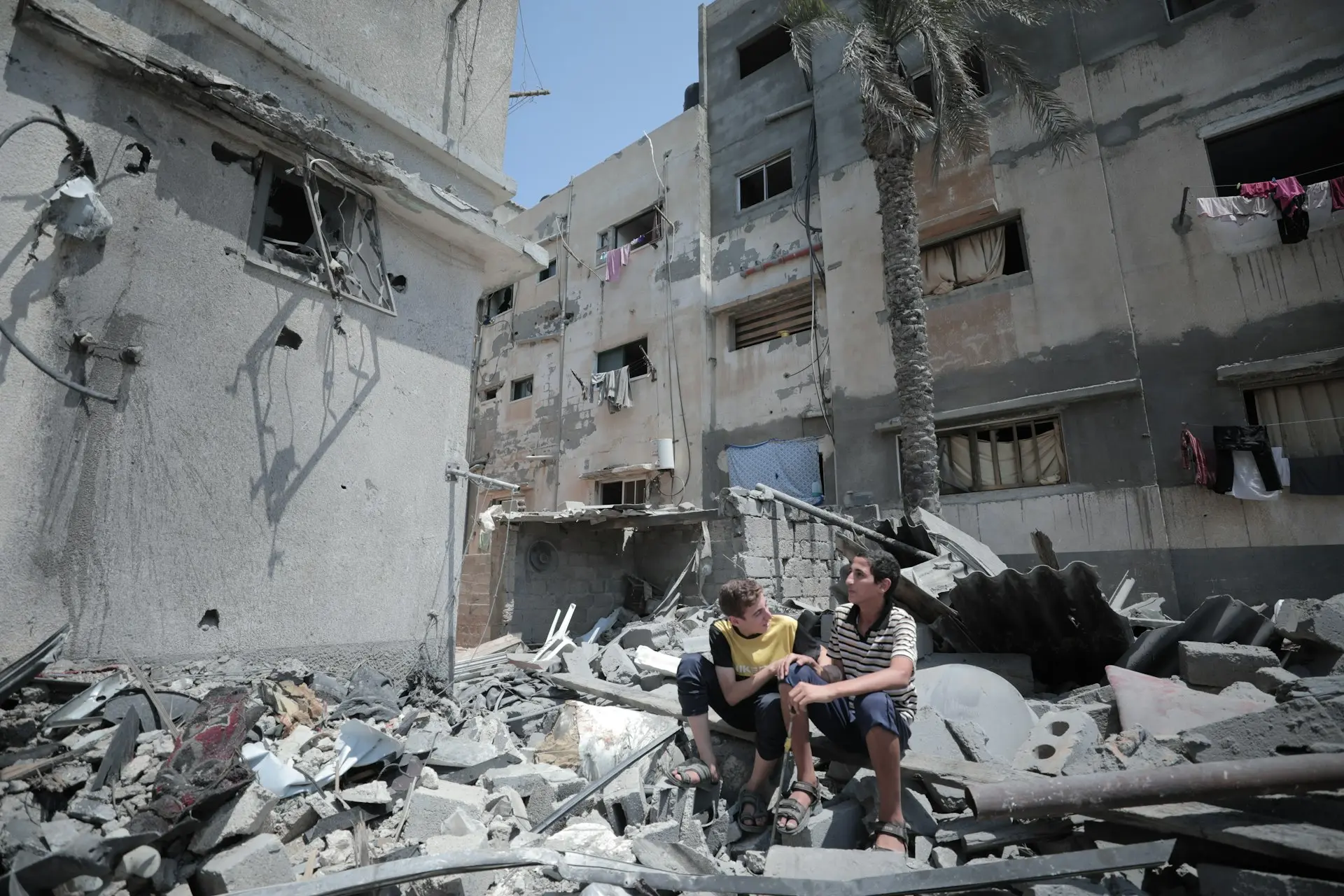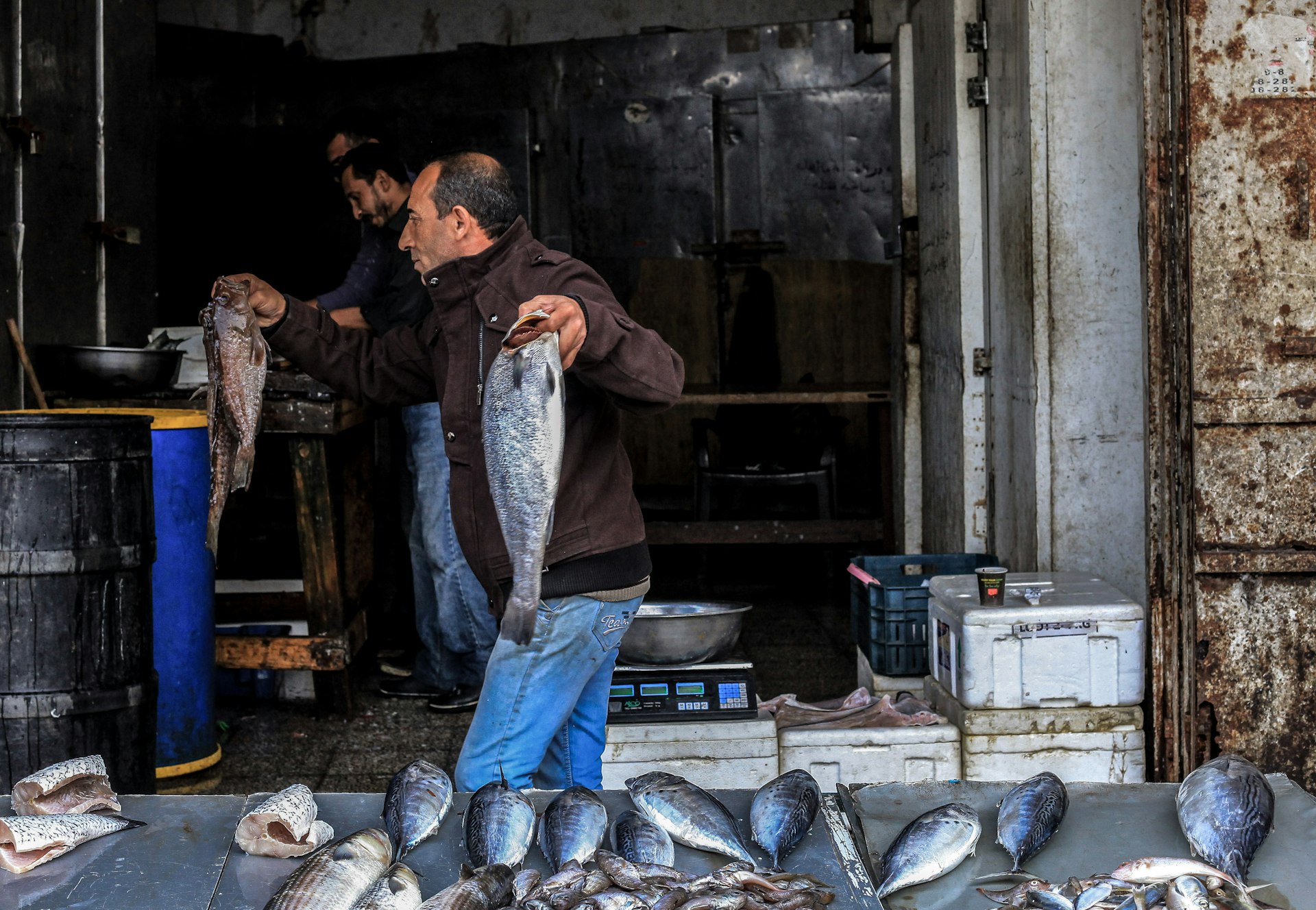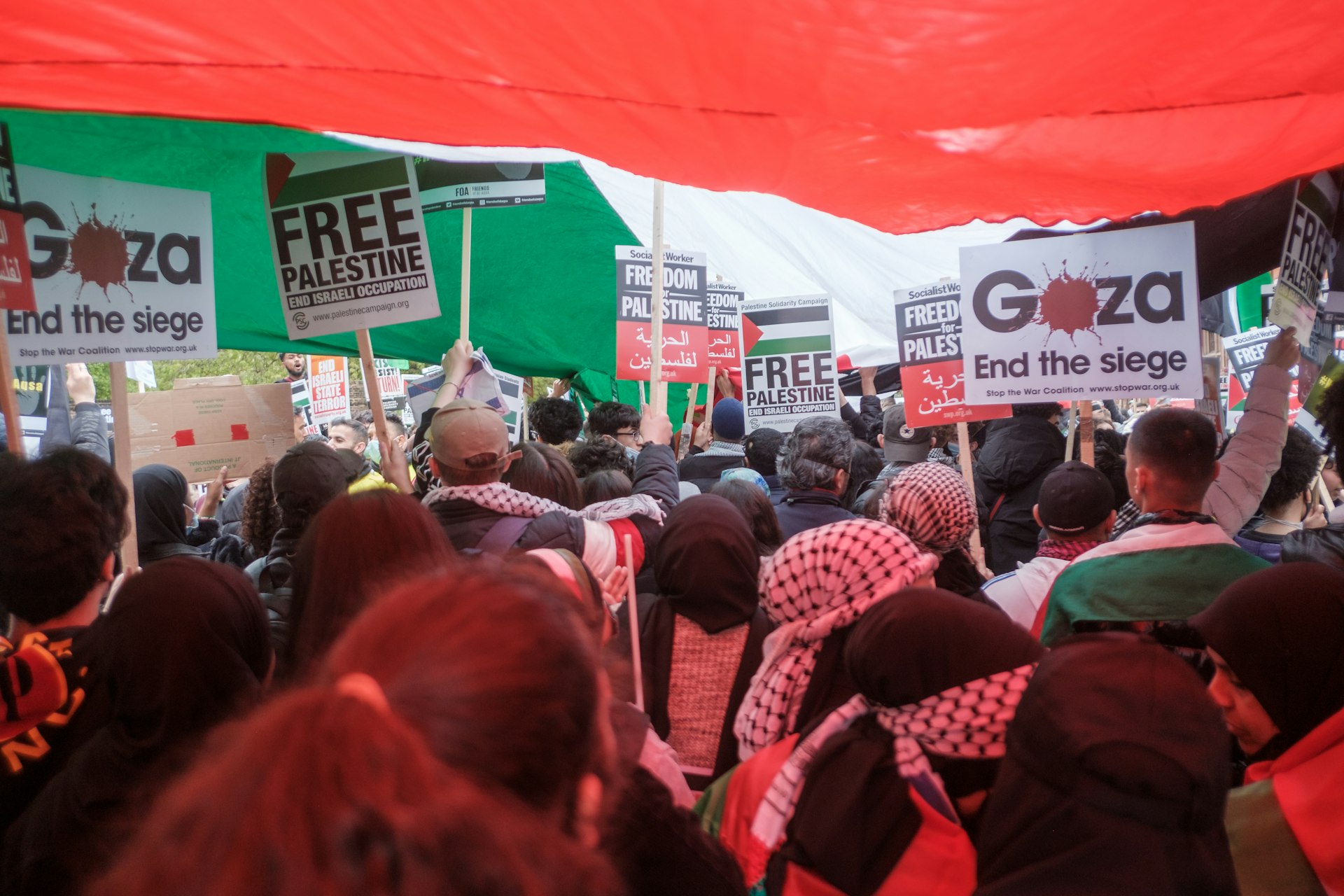In the Gaza Strip, finding a hot meal is increasingly difficult, but today, a lunch for struggling families in the southern region is set to be delivered via donkey and cart.
The meal of the day is koshari, a hearty mix of lentils, rice, and a tangy tomato sauce, prepared in large cooking pots at one of two community kitchens operated by American Near East Refugee Aid (Anera), a humanitarian organization based in the US.
"Many people depend on our meals; they lack any income to purchase what little is available in local markets, and numerous food items are simply not accessible," explains Sami Matar, who oversees the Anera team.
"Previously, we could prepare rice with meat, providing protein. Now, due to the blockade, there is no meat or fresh produce available."
Two months ago, Israel closed all crossings into Gaza, halting the entry of goods, including food, fuel, and medical supplies, and subsequently resumed military actions, ending a two-month ceasefire with Hamas. These measures were stated to be aimed at pressuring Hamas to release the hostages it continues to hold.
Recently, the UN's World Food Programme and Unrwa, the agency for Palestinian refugees, reported that they have exhausted their food aid supplies.

International calls for Israel to lift its blockade are intensifying, with warnings that mass starvation could be on the horizon and that deliberately starving civilians constitutes a war crime.
"Aid, and the lives of civilians it protects, should never be used as leverage," cautioned the UN's humanitarian chief, Tom Fletcher, on Thursday.
"Restricting aid leads to starvation among civilians. It deprives them of essential medical care. It robs them of their dignity and hope. It imposes a harsh collective punishment. Denying aid results in loss of life..
Anera's communal kitchen team is busy preparing koshari parcels to distribute among Palestinians in al-Mawasi, located in southern Gaza.
A significant number of Palestinians are depending on community kitchens for their daily survival.
In fact, hundreds of thousands of Gazans rely on a limited number of kitchens for their meals. The Anera kitchen in Khan Younis alone serves around 6,000 individuals each day.
However, if Israel continues its blockade, which is the longest it has ever enforced on Gaza, these kitchens—serving as a crucial support system for many—will soon run out of supplies. The food that was stockpiled during the ceasefire earlier this year is nearly depleted.
"The next few days are crucial. We anticipate having only two weeks' worth of supplies, if that," Mr. Matar explains while showing a local BBC reporter the vast, nearly empty Anera warehouse.

"In the past, we received over 100 trucks weekly filled with food parcels and hygiene kits. Now, we have nothing left."
"We find it challenging to provide essentials like rice, lentils, pasta, cooking oil, and salt for our community kitchens. The cost of 1kg of wood is exorbitant, and we require over 700kg daily for cooking."
Israel has accused Hamas of misappropriating and hoarding humanitarian aid to benefit its fighters or to sell for funds. However, the UN and other organizations refute these claims, asserting that they have stringent monitoring systems in place.
"We make every effort to prevent any interference from any parties. Our distribution process is precise and robust," Mr. Matar states, reviewing the aid recipient lists on his computer.
"We maintain a comprehensive database of hundreds of thousands of individuals, including their names, ID numbers, and addresses—along with the coordinates of the camps. This helps prevent duplication with the efforts of other NGOs and ensures transparency."
In the outdoor kitchen, Mr. Matar samples the food from the bubbling pots to ensure its quality. The parcels are then wrapped for distribution, with each serving up to four individuals.
All employees are provided with food for their families who are struggling.
The leftover parcels are swiftly loaded onto a donkey cart and taken through the bustling streets to al-Mawasi, a crowded tent camp for displaced people along the coast, where numerous field monitors supervise the distribution.

An elderly man using crutches appears relieved as he holds two parcels of koshari to feed his family of seven. "Thank God, this will be sufficient," he remarks.
"Don't even get me started on the situation," he continues. "We're only surviving because death hasn't claimed us yet. I swear I was searching for a loaf of bread since morning, and I found nothing.
The situation is dire, and it keeps getting worse," says a tired-looking mother. "Life is degrading here. We have men who cannot work. There is no income, and everything is so costly. We can't afford to buy anything."
"At this moment, this is wonderful," she says of the warm meal she has just received. "Because there is no cooking gas, no food. When we want to have a cup of tea, I gather leaves to start a fire."
It has been over a year and a half since the war in Gaza began, sparked by the Hamas-led attacks on southern Israel. That assault resulted in the deaths of around 1,200 people, with more than 250 taken hostage. Approximately 59 are still held captive, with up to 24 of those believed to be alive.
Israel's military campaign has claimed the lives of more than 52,400 people in Gaza, primarily women, children, and the elderly, according to the Hamas-run health ministry. Over 90% of the 2.1 million population has been displaced, with many forced to flee multiple times.
The UN has warned that the current situation "is likely the worst it has been" due to the blockade, the renewed offensive, and evacuation orders that have displaced around 500,000 people since March 18.
There is increasing international pressure on Israel to lift its blockade, with warnings that intentionally starving civilians could be considered a war crime. The UN states that Israel has a clear obligation under international law as an occupying power to allow and facilitate aid for Gazans.
Last Friday, US President Donald Trump mentioned that he had told Israel's Prime Minister, Benjamin Netanyahu, that "we need to be kind to Gaza" and urged him to permit more food and medicine into the strip.

There was no official response to that, but earlier in the week, the Israeli foreign ministry dismissed criticism from the UK, France, and Germany, which labeled the blockade as "intolerable" in a joint statement, insisting "this must come to an end."
The ministry stated that over 25,000 trucks carrying nearly 450,000 tonnes of goods had entered Gaza during the ceasefire. It added: "Israel is monitoring the situation on the ground, and there is no shortage of aid."
Israeli officials have indicated plans to revamp the aid distribution system.
For now, supplies are accumulating at Gaza's border crossings, waiting to be brought in, while inside the territory, aid workers are carefully rationing what remains of their stock.
In al-Mawasi camp, children gather playfully around Sami Matar and the Anera workers distributing the last of the day's food parcels.
Many appear painfully thin, with new warnings of acute malnutrition in Gaza—especially among the youth.
"I don't know what will happen if our supplies run out," says Mr. Matar, burdened by the weight of his responsibilities.
"The thought of having to halt this essential assistance to people would be incredibly stressful and disheartening for me and my team."
"We have an urgent appeal," he continues. "Look at us, see our desperation, understand that time is running out. We just need the crossings to be opened again."